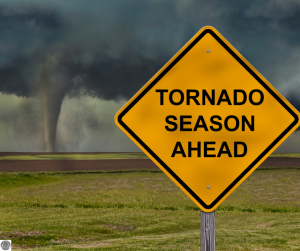One thing I wasn’t prepared for as a parent was dealing with OCD. I only knew of it from offhand comments like, “I’m so OCD; my house has to be perfect.” If ONLY that’s what it was really like.
I want to share our story. I’m not an expert, but I hope by sharing it, I can raise awareness and help others navigating a similar path.
When my son was 5, he began showing signs of anxiety. It peaked after watching an innocent tornado video—bad timing, as it was spring in the Midwest. The next week, we had a tornado warning and headed to the basement. From that point on, every storm sent him into a manic state. Nothing calmed him. We bought noise-canceling headphones, but they didn’t help when thunder shook the house.
 After a month, I realized he couldn’t function like this. I found a therapist specializing in child anxiety. Weekly sessions helped, and we were relieved.
After a month, I realized he couldn’t function like this. I found a therapist specializing in child anxiety. Weekly sessions helped, and we were relieved.
Then, a few months later, he refused to eat, fearing he’d choke. It got so bad he lost weight and looked sickly. His therapist said, “He needs more than I can provide,” so we moved to a food therapist after confirming with an ENT that nothing physical was wrong. Their approach wasn’t ideal for his age (being too young), so we ended that. And we managed with softer foods until eventually it passed.
Excited for our summer beach vacation, we thought we were in the clear—until he started obsessing over not wanting to throw up. Then, he began washing his hands excessively, inspecting every inch. On top of that, he constantly asked, “Am I going to throw up?” When I asked why, he said, “I don’t want to get sick before vacation.”
This time, I suspected OCD and searched for a specialist. We couldn’t get in before our trip. The car ride was a nightmare. He wouldn’t touch anything and kept his hands in his lap. If he accidentally touched something, it triggered a meltdown.
Desperate, I found the AT Parenting Survival Podcast, specifically Episode 354: “A New Way to Help Your Child with OCD at Home.” That led me to www.nocd.com, an online platform with licensed pediatric OCD therapists. They got us in quickly. Those two resources were lifesavers.
What I Learned:
- OCD is a form of anxiety that stays with a person for life, alternating between dormant and heightened phases. Typically genetic, I bet you have someone in your family who also struggles with it.
- It hops around — for him, storms to choking to throwing up, then to compulsive handwashing.
- Talk to your kids. Bedtime is a great time to learn their thoughts. That’s when I discovered he was washing his hands to avoid being sick for vacation.
- Not every therapist is trained in OCD. It requires specialized training.
- The most crucial lesson: Don’t feed their fears. Instead of saying, “You won’t throw up,” say, “What if you do throw up?” This stops the cycle of ruminating thoughts. Once I adopted this approach and stayed consistent, he improved by 50%. Every family member and teacher must commit to this strategy.
 OCD is exhausting, especially if you’re the go-to parent for their worries. But I can’t imagine how exhausting it is for him. If your child shows signs of intrusive thoughts or behaviors like excessive handwashing or turning lights on and off, don’t ignore it, and don’t laugh it off. Early intervention was the best thing we did for him. Be patient, stay consistent, and know you’re not alone.
OCD is exhausting, especially if you’re the go-to parent for their worries. But I can’t imagine how exhausting it is for him. If your child shows signs of intrusive thoughts or behaviors like excessive handwashing or turning lights on and off, don’t ignore it, and don’t laugh it off. Early intervention was the best thing we did for him. Be patient, stay consistent, and know you’re not alone.
If you’re unsure where to start, listen to the podcast I mentioned—it’s eye-opening and full of hope.










